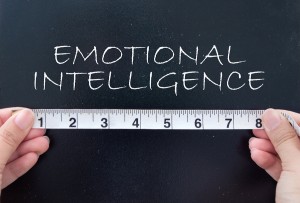Embodied Learning – A Lifelong Practice that Leads to Excellence and Mastery
 “By my actions teach my mind.” ~ William Shakespeare
“By my actions teach my mind.” ~ William Shakespeare
Learning doesn’t stop when you finish your schooling. As the world has become more connected we are required to continually learn new skills and adapt to change. This takes great flexibility in our thinking. Yet this raises an important question: Is thinking enough to achieve mastery and excellence? No, and here’s why…
Do you really know ‘how to learn’?
Perhaps your style of learning has been to memorize facts intellectually until you take a test or do a task, and then you quickly forget it. Or perhaps you “know” a topic but never put it into practice, let alone master it.
Honestly, would you book Carnegie Hall for your daughter’s piano recital if she had only looked at a music book? No, a master pianist has years of practice to train the mind (to gain the skill), the body (to gain the dexterity) and the spirit (to gain the confidence) to cooperate together harmoniously. Mastery, through embodied learning, requires all three – the mind, the body, and the spirit.
Learning with the Mind. The educational system traditionally teaches the mind. As a result, many people stay stuck because they theoretically know what they should do, but they feel overwhelmed or are distracted by the next “bright, shiny object” that comes along. There’s too much information for any of us to process. We’re moving at a speed that demands immediate action.
In order to master a skill, it’s vital to stay connected as you embody your higher purpose and remain focused on what’s important. This requires…
Learning with the Spirit. Over time we establish a characteristic mood. People can see us as cheery or brooding, positive or negative, and helpful or closed-minded to give a few examples. People will either be repelled or attracted by our mood.
Emotions, on the other hand, come and go as situations change. However, if you’re not skilled in resolving your emotions they take on a life of their own and become a mood. For example, if you don’t effectively deal with your sadness and loss, it may become a mood of depression.
Your emotions and moods shape the way you learn. If you’re negative, and self-defeating, your learning and productivity will suffer, regardless of how skilled you are. On the other hand, if you’re open and curious you’ll be receptive to learning and increase your creative and innovative skills.
Learning with the Body. To manage your own emotions (not repressing them or becoming victims of them) you must approach them from a somatic perspective. How you organize your body produces certain moods and emotions, both positive and negative.
The body never lies. You may say you’re ready for a presentation to a room full of clients, because you know your material inside and out. But when you stand in front of them and you stammer and stutter and forget key points, your body is telling the truth – that you aren’t ready emotionally.
Embodied learning means there’s a congruency between your intellectual thoughts, emotional state and your body organization. And you only achieve this harmony through practice. For example, when you learn to model confidence behavior, you’ll feel confident. And as you repeatedly practice it, you will become confident. You will have learned this new skill so well you embody it in all you do. It will come to you easily. As you perform these actions in a graceful manner, people will see you as a master of your craft.
Are you seeing areas in your own life that can benefit from embodied learning? I would be pleased to partner with you as you discover how to become more mindful and aware in your approach to life. Please contact me and we can schedule a time to work together in person or via Skype.





